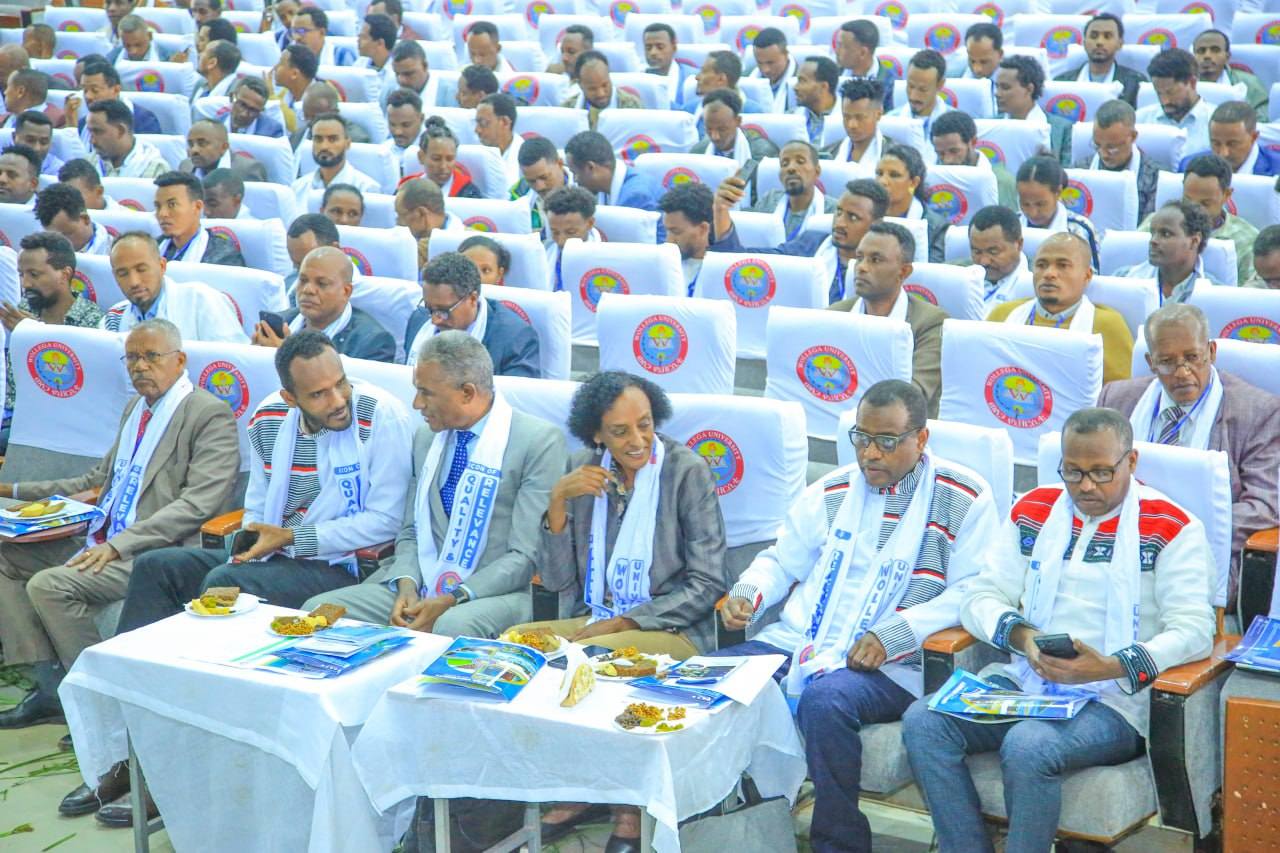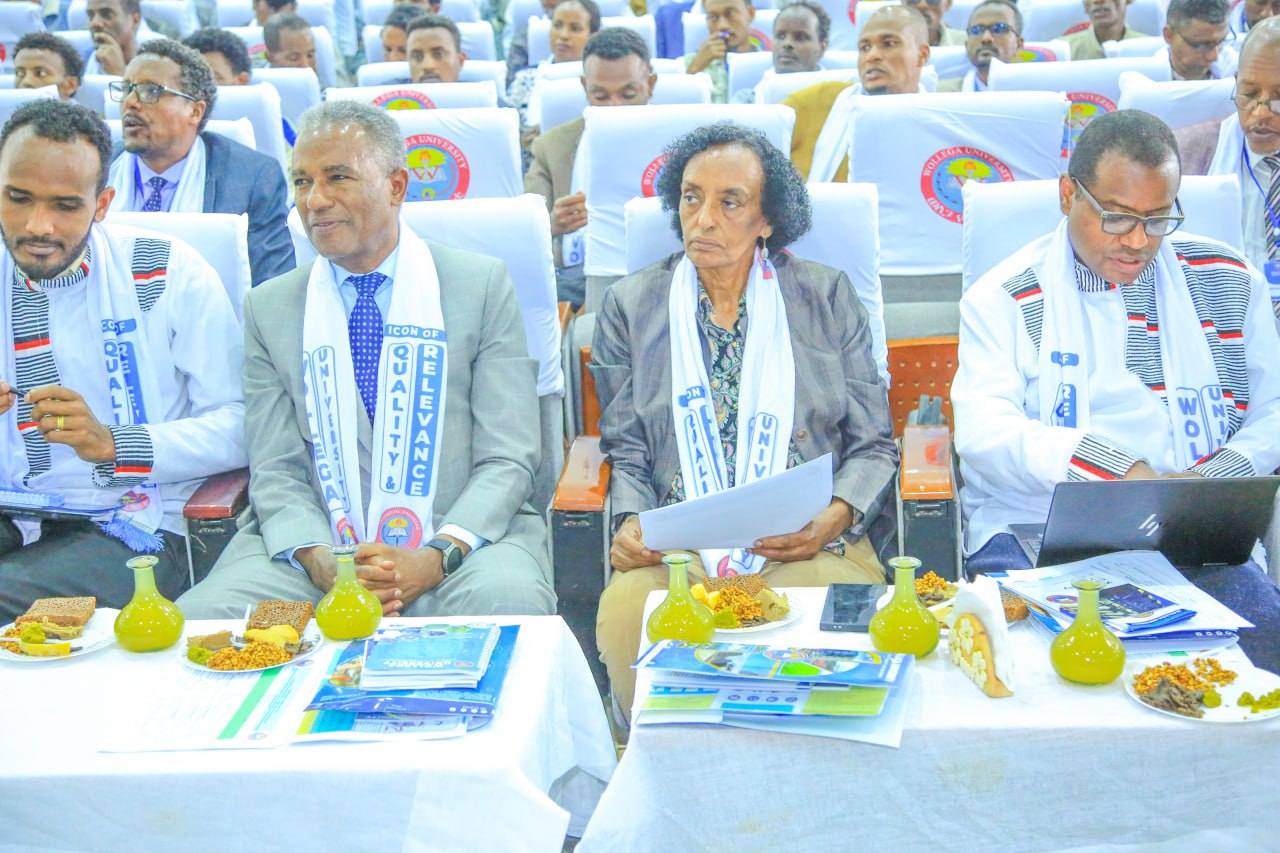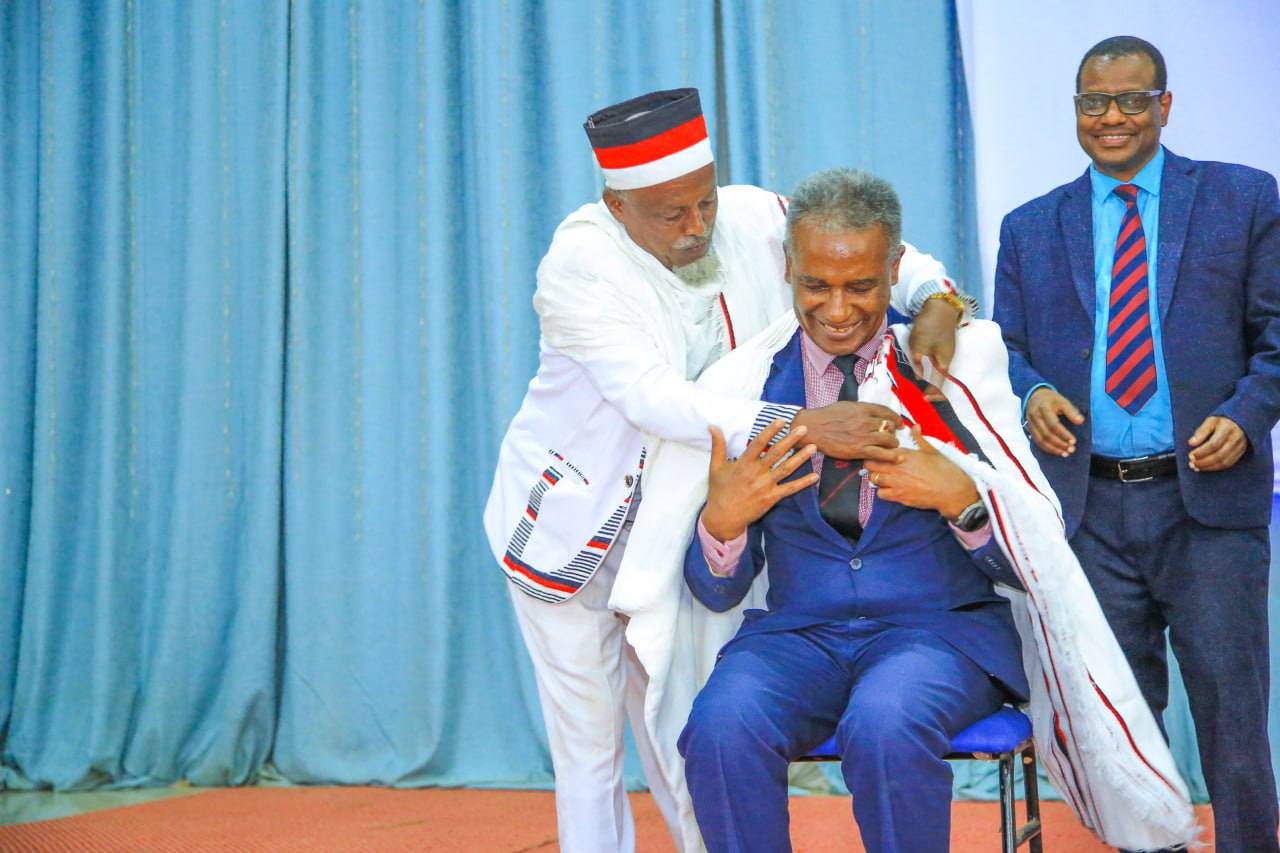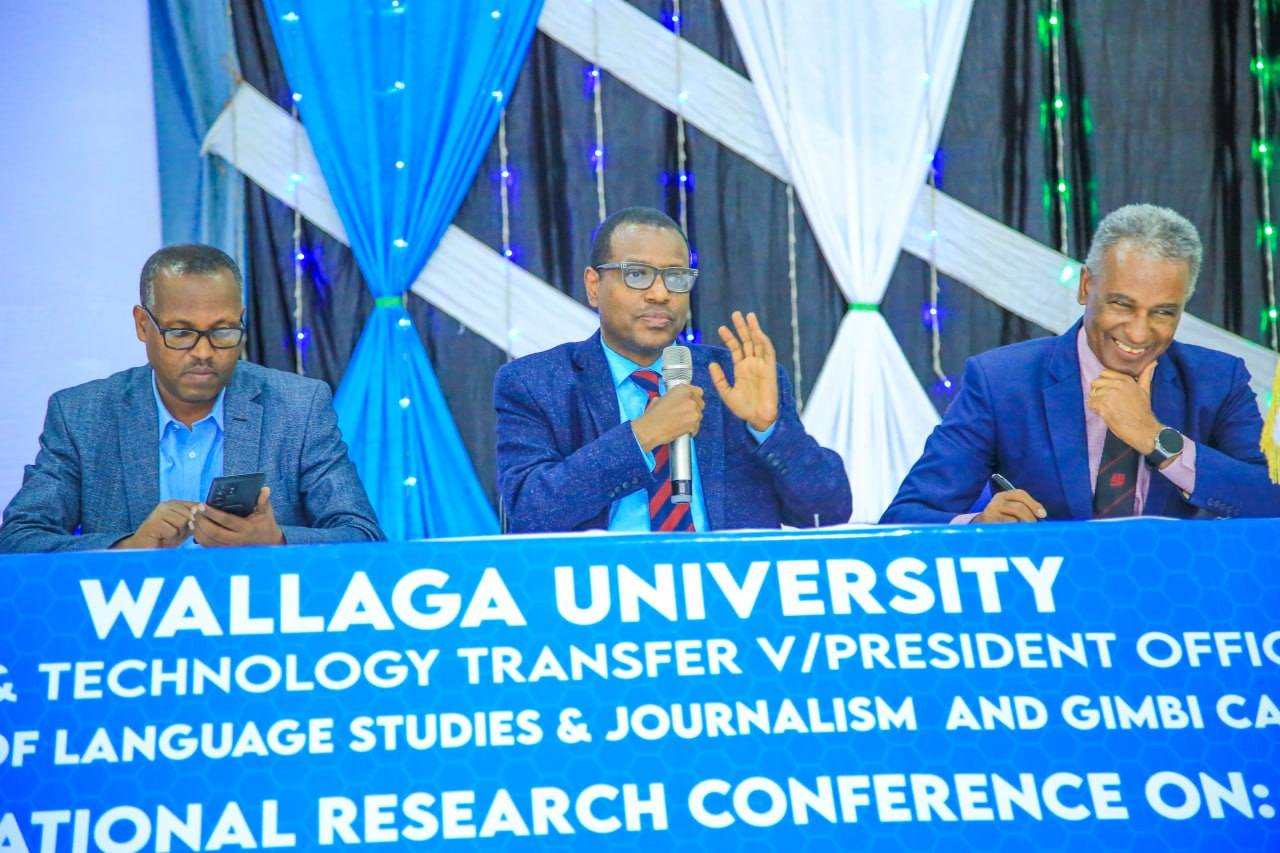 The Conference was organized under the main theme: ''Enhancing Societal System Resilience - Language, Culture, Peace, and Development'' by Resaerch and Technology Transfer Vice President's Office in collaboration with Institute of Languages Study and Journalusm (ILSJ) and College of Social Sciences and Humanities (CSSH). The Conference was officially opened by Dr. Tesfaye Lemma, Acting President of Wallaga University. The opening speeches highlighted the collaborative efforts of all the stakeholders involved in the program, expressing appreciation for their preparation and participation. Dr. Teferi Terefe delivered the welcoming address, setting the tone for the event. The opening speeches and keynote presentations made by the two speakers His Excellency Dr. Yonas Adaye, Commissioner for Ethiopian National Dialogue Commission, and Dr. Eba Mijena, Chief Executive Director for Academic Affairs, MoE, served as the main drivers of the program. The University's Administration Board Member and Guest of honor of the event, Mrs. Kulani Gudina Tumsa, also joined the team during the discussion session.
The Conference was organized under the main theme: ''Enhancing Societal System Resilience - Language, Culture, Peace, and Development'' by Resaerch and Technology Transfer Vice President's Office in collaboration with Institute of Languages Study and Journalusm (ILSJ) and College of Social Sciences and Humanities (CSSH). The Conference was officially opened by Dr. Tesfaye Lemma, Acting President of Wallaga University. The opening speeches highlighted the collaborative efforts of all the stakeholders involved in the program, expressing appreciation for their preparation and participation. Dr. Teferi Terefe delivered the welcoming address, setting the tone for the event. The opening speeches and keynote presentations made by the two speakers His Excellency Dr. Yonas Adaye, Commissioner for Ethiopian National Dialogue Commission, and Dr. Eba Mijena, Chief Executive Director for Academic Affairs, MoE, served as the main drivers of the program. The University's Administration Board Member and Guest of honor of the event, Mrs. Kulani Gudina Tumsa, also joined the team during the discussion session.
The firstday's morning communal session was opened by a thought-provoking framework paper titled “The Imperatives of Resilience to the Contemporary Threats to Societal Security, presented by Dr. Demissie Ferdissa. The paper stressed the interconnectedness of global and local (glocal) risks, articulating that today's societal security is under siege from a variety of both known and emerging threats.
 Secondly, His Excellency, Dr. Yonas Adaye, delivered an inspiring keynote speech on “Enhancing Societal Resilience and Peace building through National Dialogue: Implications for the Stability of the Horn of Africa.” His presentation was widely acclaimed for its provocative insights and its ability to galvanize critical discussion among participants. Dr. Yonas argued that national dialogue is a powerful mechanism for resilience building and peace consolidation, particularly in fragile and conflict-prone regions like the Horn of Africa. He underscored that resilience is not merely technical but deeply political, social, and cultural, requiring inclusive governance, recognition of local voices, and reconciliation mechanisms rooted in dialogue.
Secondly, His Excellency, Dr. Yonas Adaye, delivered an inspiring keynote speech on “Enhancing Societal Resilience and Peace building through National Dialogue: Implications for the Stability of the Horn of Africa.” His presentation was widely acclaimed for its provocative insights and its ability to galvanize critical discussion among participants. Dr. Yonas argued that national dialogue is a powerful mechanism for resilience building and peace consolidation, particularly in fragile and conflict-prone regions like the Horn of Africa. He underscored that resilience is not merely technical but deeply political, social, and cultural, requiring inclusive governance, recognition of local voices, and reconciliation mechanisms rooted in dialogue.
Additionally, a representative from the NGO (Ethiopian Mulu Wongel Amagnoch Development Commission) sponsoring the event, which focuses on peace initiatives in western Ethiopia, gave a brief presentation about their mission and future prospects.
Over the two days, 31 research papers were presented, sparking dynamic discussions among attendees. The papers were divided into two primary themes: ''Language and Culture'' (15 papers) and ''Peace and Development'' (16 papers). The papers have shown two distinct components: exploring the changes, processes and impacts visa-a-vis Institutional and governance systems, challenges, and prospects.
Nearly half of the papers presented under both sub-themes focused on analyzing socioeconomic vulnerabilities, environmental stressors, and their implications for societal resilience. These studies adopted diverse theoretical frameworks including political ecology, vulnerability analysis, sustainable livelihoods approaches, and participatory rural appraisal.
 The studies presented covered a wide range of topics, offering valuable insights into resilience from both theoretical and practical perspectives. Many papers focused on how language and culture contribute to societal resilience. Several presentations addressed language teaching strategies and the integration of technology into instruction.
The studies presented covered a wide range of topics, offering valuable insights into resilience from both theoretical and practical perspectives. Many papers focused on how language and culture contribute to societal resilience. Several presentations addressed language teaching strategies and the integration of technology into instruction.
A significant portion of the conference focused on peacebuilding efforts. Some of the papers presented at the conference explored various dimensions of resilience in relation to peacebuilding and development while still some others interrogated institutional frameworks, governance challenges, and policy gaps in building societal resilience in the face of rapid local and global changes.
Several papers highlighted community-based governance models, customary systems, and participatory decision-making as essential pillars for strengthening societal resilience. Critically assessing the role of governance, institutional innovation, and indigenous knowledge in crafting adaptive and context-relevant societal resilience pathways.
Moving forward, there will be a strong call for continued collaboration between universities, NGOs, and governmental bodies to ensure the successful implementation of the conference’s findings.
In summary, the conference served as a platform for fostering deeper understanding and cooperation, setting the stage for future research collaborations and meaningful contributions to resolving issues related to peace and development in Ethiopia.

